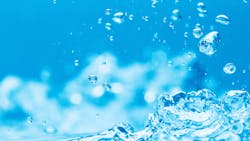Michigan’s Department of Environment, Great Lakes, and Energy (EGLE) has selected the Alliance for Water Efficiency to conduct a project to identify innovations and technological advancements in water conservation best practices.
The project will benefit Michigan’s water sectors and support long-term sustainability of the state’s water resources. EGLE says that the project will also advance Michigan’s goals under the MI Healthy Climate Plan to protect public health and the environment and develop new clean energy jobs by making Michigan’s economy 100% carbon neutral by 2050.
The Alliance for Water Efficiency is a nonprofit organization dedicated to the efficient and sustainable use of water. The organization will receive $89,648 to conduct the project.
The project will inform Michigan’s Water Use and Water Conservation and Efficiency program and further the state’s water conservation and efficiency goals and objectives established under the Great Lakes St. Lawrence Governors & Premiers’ Great Lakes Agreement and Compact. The Agreement and Compact detail how the states and provinces act together to protect, conserve, restore, improve, and effectively manage the waters and water-dependent natural resources of the Great Lakes Basin.
In 2008, Michigan law required water sectors including public water supply, agriculture irrigation and non-irrigation, and business and industry to adopt generally accepted water management practices or environmentally sound and economically feasible water conservation measures. Since then, agriculture and public water supply sectors have established processes to conduct reviews of their sector-specific water conservation practices on a periodic basis to reflect advancements and innovations in science, research, and technology.
Other sectors, primarily from business and industry, may be advancing their practices. However, they do not have an established process to review and update conservation measures to reflect advancements achieved since the practices were developed.
This research project will further Michigan’s water conservation efforts by gathering and sharing the latest information on innovative practices for the business and industry sectors to support advancements in achieving Michigan’s water conservation and efficiency goals and objectives.
The grant is co-funded by the Michigan Great Lakes Protection Fund(MGLPF) and funding appropriated by the Michigan Legislature to the Michigan Water Use Advisory Council (WUAC) through the federal American Rescue Plan Act. It will be administered by EGLE’s Office of the Great Lakes (OGL).



